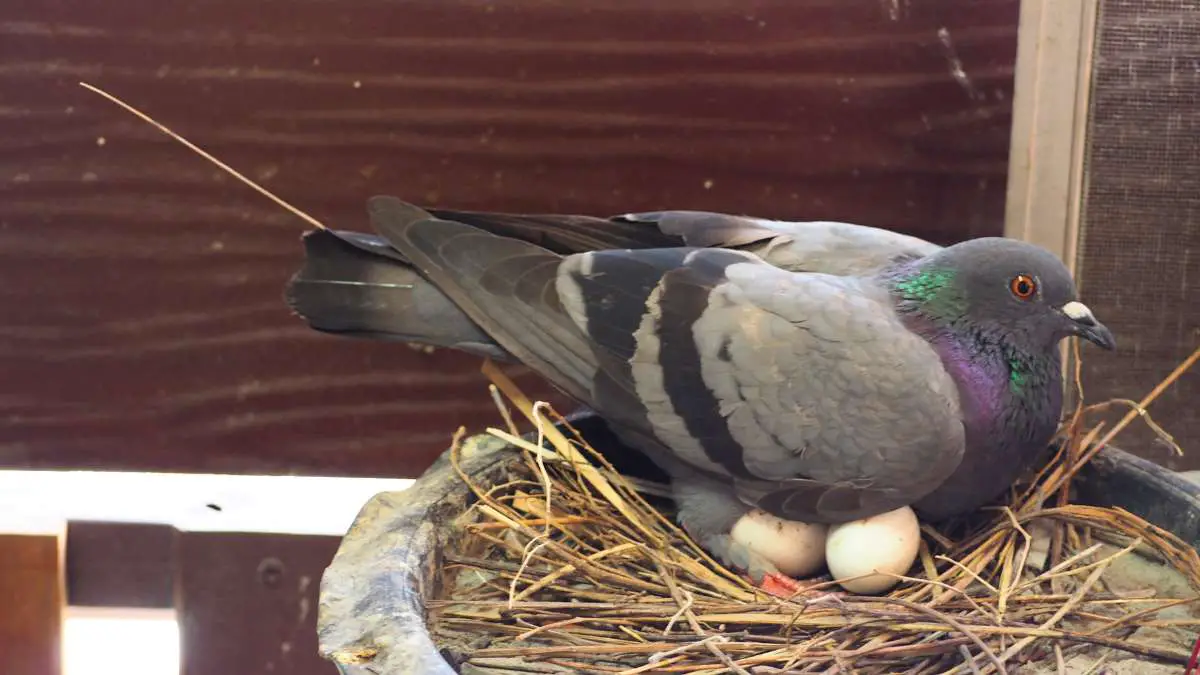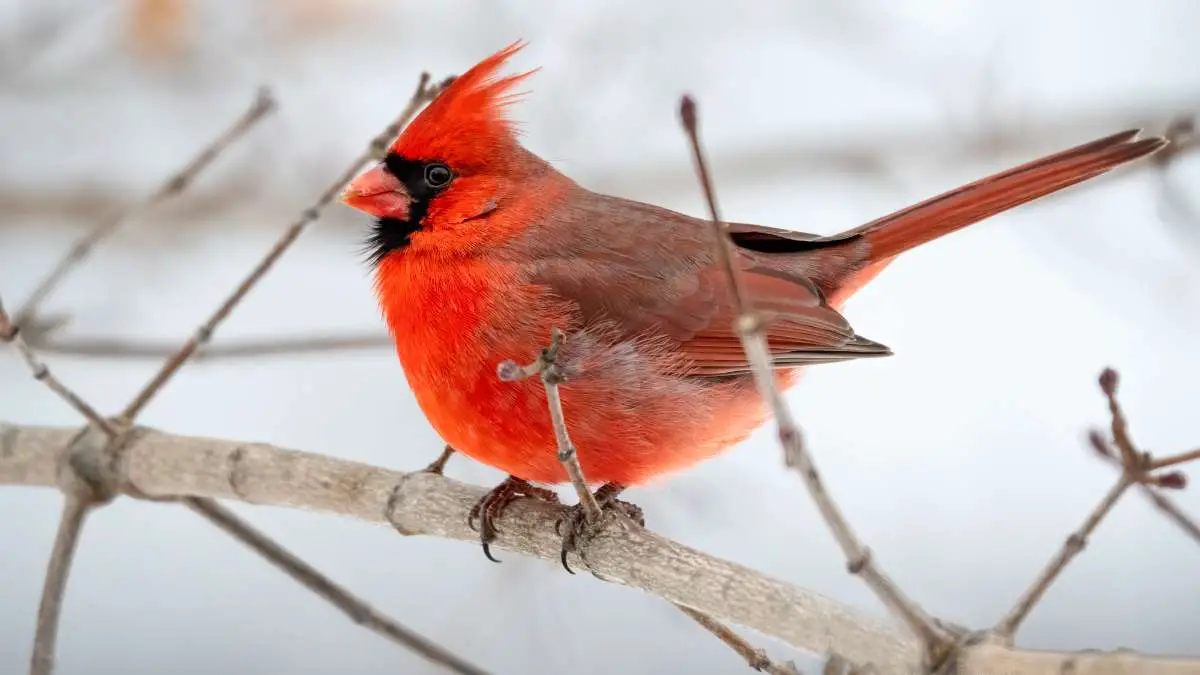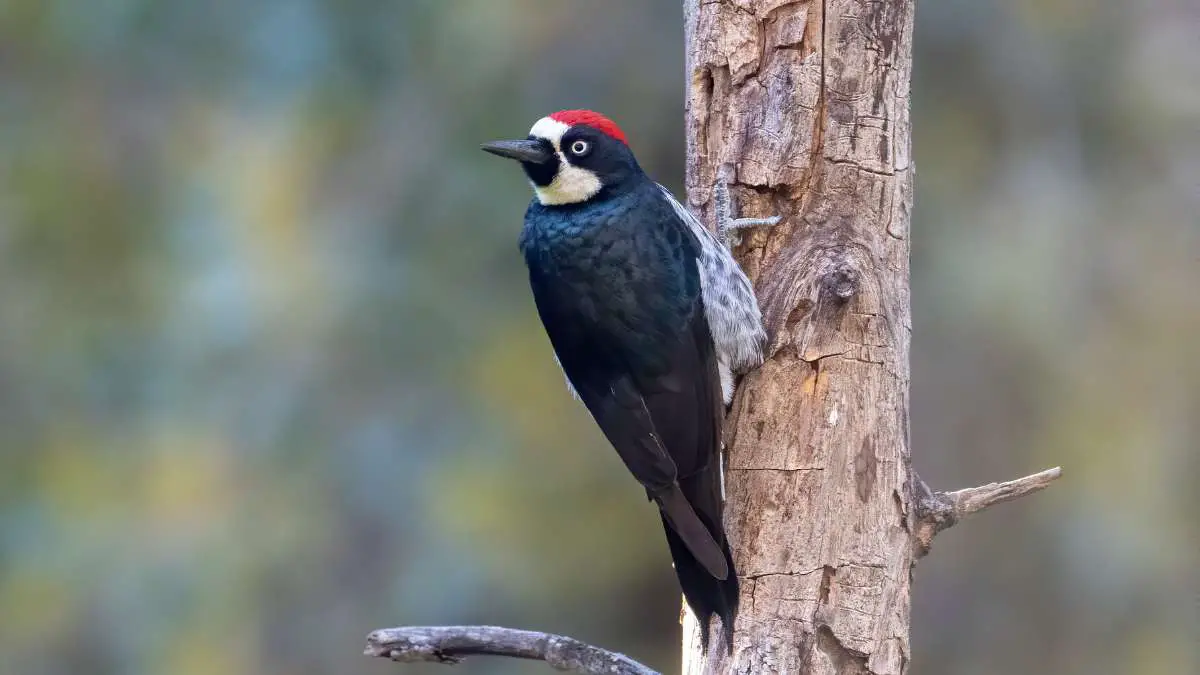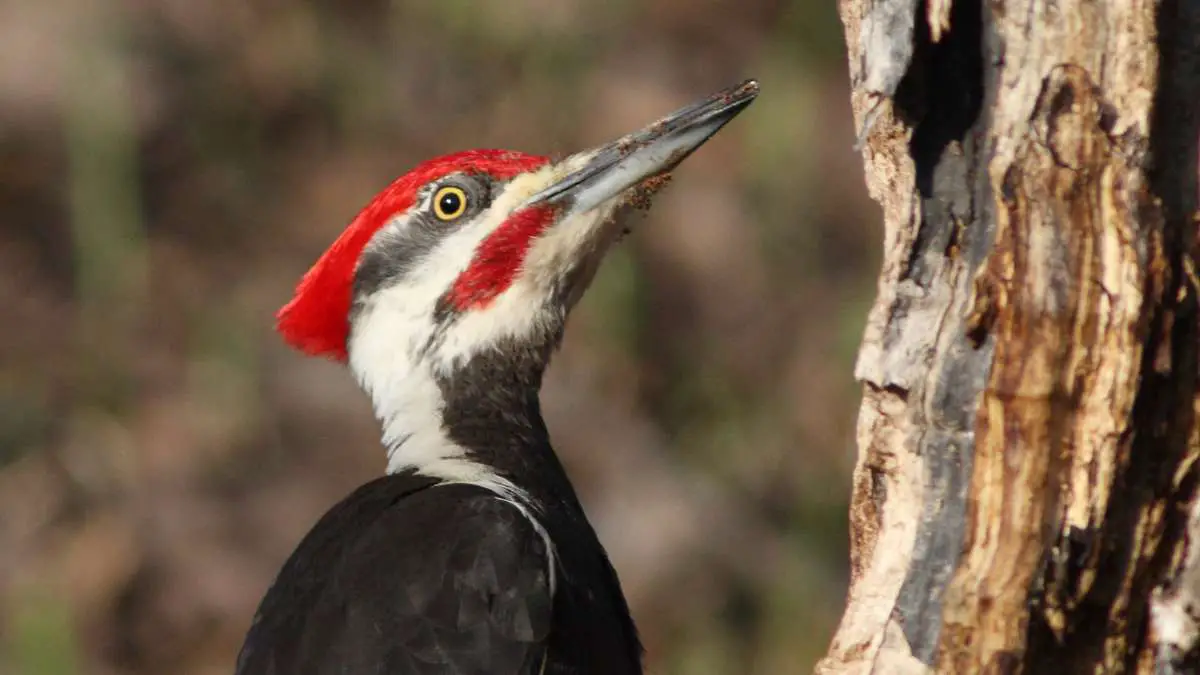Pigeons, like many birds, invest a great deal in their nests and eggs. Generally, pigeons are dedicated parents, diligently caring for their eggs. However, instances of pigeon egg abandonment do occur.
Various factors contribute to this behavior. Natural predators, such as snakes and birds of prey, pose a threat, prompting pigeons to abandon nests for the safety of future offspring.
Additionally, human interference, like constant disturbances or changes in their environment, can lead to nest and egg abandonment. It’s crucial to observe signs of abandonment, like neglected eggs or a vacant nest.
The Nesting Rituals of Pigeons
Pigeons are meticulous when it comes to selecting the perfect nesting site. These savvy birds often opt for elevated spaces, like ledges or rooftops, providing a vantage point for keeping an eye on potential threats.
When it comes to construction, simplicity is key. Pigeons utilize an array of materials, ranging from twigs and leaves to bits of paper or even discarded urban debris.
Their nests are surprisingly resilient, showcasing their resourcefulness in adapting to the urban environment.
Pigeons display a preference for elevated locations that offer safety and visibility. This instinctive choice reflects their need to protect their nests and offspring from ground-based predators.
Pigeons showcase a resourceful approach to nest-building, utilizing readily available materials. Twigs and leaves are staples, but they also incorporate human-made items like paper and bits of string.
This adaptability ensures successful nesting even in the midst of urban surroundings.

The Pigeon Egg-Laying Process
Pigeon courtship is a delightful dance, a display of affection and commitment. Male pigeons court their potential mates with gentle coos, puffing up their feathers to appear more appealing.
Male need to perform dances to win the females but females always look for perfect body size and plumage to choose. Once a pair forms a bond, they engage in shared activities, reinforcing their connection.
Courtship involves charming displays of affection, where male pigeons showcase their suitability as mates. Coordinated rituals, like mutual preening and gentle cooing, strengthen the bond between partners.
After courtship triumphs, the female pigeon begins the delicate process of laying eggs. Nests, carefully constructed in elevated spaces, become the incubation chambers for the eggs.
The female typically lays two eggs, and both parents take turns keeping the eggs warm until they hatch.
Factors Influencing Pigeon Egg Abandonment
Natural Predators and Threats
Pigeons, despite their adaptability, contend with natural predators that can disrupt their nesting harmony.
From opportunistic snakes to airborne threats like birds of prey, the presence of predators near nests induces stress, potentially causing pigeons to abandon their eggs.
The constant threat of predators can lead to heightened anxiety among pigeon parents, compelling them to abandon their nests to safeguard future offspring.
Understanding these dynamics helps us appreciate the challenges they face in the wild and even in urban environments.
Beyond predators, environmental factors such as extreme weather conditions or habitat disturbances can also contribute to pigeon egg abandonment. These challenges highlight the delicate balance pigeons strive to maintain in their nesting environments.
Their own instincts about unhealthy eggs and chicks
Well, this might be a bit controversial as we can not scientifically prove the instincts of a Pigeon, but anecdotes tell us that in many animal groups they tend to abandon their young with bad health not to look after until adulthood.
Since these facts are available anecdotally, there is a lot of room for a proper scientific study to test this hypothesis on Pigeons.
Human Interference and Urbanization
As cities expand, so does human activity, impacting pigeon nesting habits. Understanding the effects of human interference and urbanization is crucial for promoting coexistence.
How Human Activities Affect Pigeon Nesting Habits?
Constant disturbances, removal of nesting sites, or unintentional destruction of nests by humans can disrupt pigeon nesting behaviors. Awareness of these issues encourages responsible interactions in shared urban spaces.
Impact of Urbanization on Pigeon Populations
The rapid growth of cities can alter pigeon populations. Anti-pigeon building designs, coupled with increased human presence, poses challenges for these adaptable birds.
Striking a balance between urban development and preservation for suitable places for pigeons is essential for fostering harmonious cohabitation.
Signs of Pigeon Egg Abandonment
Recognizing Signs of Abandonment
Observing pigeon behavior provides vital clues. If you notice a neglected nest, eggs left unattended for extended periods, or a general lack of parental attention, these may be signs of egg abandonment. Understanding these cues enables timely intervention.
Importance of Timely Intervention:
Recognizing signs of egg abandonment early is crucial. Timely intervention can involve creating a safe nesting environment, addressing potential threats, or even collaborating with wildlife conservation efforts.
Proactive measures contribute to the well-being of pigeon populations and foster coexistence.
Mitigating Pigeon Egg Abandonment
Elevate nesting spots away from ground-level threats, providing pigeons with secure locations. Use bird-friendly materials such as twigs and leaves to encourage nest-building.
Balconies or rooftop corners can be transformed into safe havens with minimal adjustments, fostering a conducive environment for successful pigeon nesting.
Importance of Addressing Potential Threats:
Identifying and addressing potential threats is paramount. By minimizing disturbances, keeping natural predators at bay, and ensuring a stable nesting environment, we can significantly reduce stressors that lead to egg abandonment.
Human Intervention Strategies
How Humans Can Help Prevent Egg Abandonment?
Humans can actively contribute to pigeon welfare. Respecting nesting spaces, avoiding unnecessary disturbances, and refraining from removing nests can foster a positive coexistence.
Educating communities on the importance of supporting urban wildlife helps build a collective responsibility towards our avian neighbors.
Role of Wildlife Conservation Efforts in Urban Areas:
Urbanization brings challenges, but proactive wildlife conservation efforts can make a difference. Creating designated green spaces, implementing bird-friendly urban planning, and supporting local conservation initiatives contribute to the overall well-being of pigeon populations in urban areas.
But Pigeon populations may go insane with rapid population growth beyond the carrying capacity thus urban planners need to think about that as well, when planning to maintain and manage a healthy population of pigeons.
Tabulated summary of the Pigeon nesting habits and nest abandonment
| Aspect | Facts |
| Pigeon Nesting Habits | Pigeons often nest in elevated locations like ledges and rooftops. |
| Materials Used for Nests | Pigeons construct nests using twigs, leaves, and sometimes urban debris like bits of paper or string. |
| Reasons for Abandonment | Predators such as snakes and birds of prey can induce stress, leading to nest abandonment. |
| Environmental Threats | Extreme weather conditions and habitat disturbances can also contribute to pigeons abandoning their nests. |
| Human Interference Impact | Human activities, such as constant disturbances or removal of nests, may disrupt pigeon nesting habits. |
| Signs of Abandonment | Neglected nests, eggs left unattended, and a lack of parental attention are behavioral cues indicating abandonment. |
| Mitigation Strategies | Elevating nesting spots, minimizing disturbances, and supporting wildlife conservation efforts can mitigate abandonment. |
| Promoting Coexistence | Respecting nesting spaces and creating bird-friendly urban environments contribute to harmonious coexistence. |
Conclusion
To sum it up, we’ve explored into the world of pigeon parenting, understanding why they might leave their eggs. Predators and human activities are key factors.
Remember, spotting signs of abandonment early is crucial. Yet, in our shared urban spaces, creating a safe environment for pigeons is doable.
Let’s strive for coexistence by respecting their nests, minimizing disturbances, and fostering a city where pigeons and humans thrive side by side. By learning and adapting, we can ensure a harmonious balance in our shared habitat.




